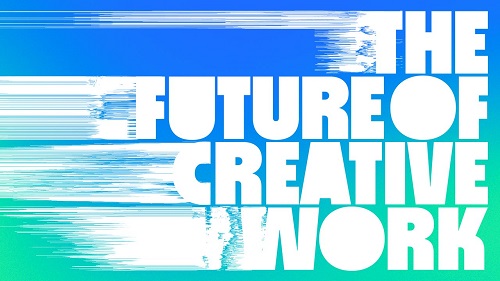TBWA\Worldwide released a global study on the Future of Creative Work, revealing how creative talent feels about the state of the workplace, and what companies can do to make it better for employees.
Compared with the general employee benchmark, creative people are less likely to be satisfied with their work/life balance (55 percent, compared to a 64 percent global benchmark) and more likely to feel burned out or discouraged a lot of the time.
In a culture where boundaries, mental health and stability are the most important values, the time has come for change.
Analyzing data from three different global sources – a proprietary TBWA global quantitative study that surveyed employees at creative companies as well as a general employee sample; syndicated resources such as Forrester and HBR, and by scraping content from employee review sites – the study seeks to uncover how much the culture of creative work had changed since the work-fueled 2010s.
“Creativity has the ability to move the world forward,” said Ben Williams, TBWA’s Global Chief Creative Experience officer, who co-led the study with Agathe Guerrier, the agency’s Global Chief Strategy Officer. “But for agencies and creative companies to be leading this progress, our work cultures need to evolve, quickly.”
The full report is available, and highlights include:
Today’s Talent Works to Live, Not Vice Versa
We are entering a new era when it comes to the culture of work. To put this research into context, the study looked at relevant Edges – TBWA’s term for a meaningful cultural shift. The top three Edges that resonated the most in the study across the sample of all employees showed work being put firmly back in its place.
- Work/ Life Boundaries – 80 percent of respondents agree/strongly agree it is important their employer helps them achieve a good balance between personal and professional life.
- Stability Pursuit – 79 percent of respondents strongly agree it is important their employer helps them maintain stability in their work-life so they can plan confidently for the personal milestones they care about.
- Mind Maintenance – 77 percent of respondents agree strongly agree it is important their employer helps them care for their mental health by avoiding unnecessary pressures or stress, and proactively supports their emotional wellbeing.
The cultural value that mattered the least out of the nine measured among all respondents, creative and the general sample, was Activist Awakening: the idea that work should align with a person’s values or causes they care about.
Creative Talent Expects More
The findings show that creative talent has stronger demands of their employers than the general population sample:
- Work/Life Balance – 63 percent of creatives strongly agree it is important that their employer help them achieve a healthy balance vs 44 percent of the general population sample.
- Stability Pursuit – 59 percent of creatives strongly agree vs 38 percent of the general population sample.
- Mind Maintenance – 58 percent of creatives strongly agree vs 42 percent of the general population sample.
While creative companies earn high marks for placing a high value on creativity (81 percent vs a 51 percent global benchmark), as well as building cultures where employees feel respected by their coworkers (86 percent) and receive praise and recognition for their work (71 percent), they fall short on the day-to-day employee experience.
Creatives are two times more likely to say things like approvals and authorizations, day to day schedule and task management and daily commutes degrade their work experience than the global benchmark.
The findings point to some actionable changes creative companies can make. These include:
- Creativity cannot thrive without daily process and structure – Creative industries are not delivering on the functions of daily work – the approvals and processes and operational burdens that get in the way of getting down to work.
- Talent wants work to stay in its lane – While we used to think talent wanted work and life to blend, it’s clear they want boundaries. How can we better protect talent’s boundaries, or at least recognize when we overstep, especially when the physical boundaries of life and work are blurrier than ever with remote work?
- Stability matters more than spirituality – Where we thought talent yearned for an employer who aligned with their high-level values and worldview, we’re discovering their expectations are more pragmatic. Companies can focus on the fundamentals, from annual reviews to growth plans to compensation and gain more satisfaction than offering quick fixes.
TBWA is in the initial stages of a long-term investment in employee experience, exploring more efficient models and ways of working and applying learnings to the company’s operations. Anyone interested in advancing the Future of Creative Work agenda can contribute comments and ideas directly in the report.









